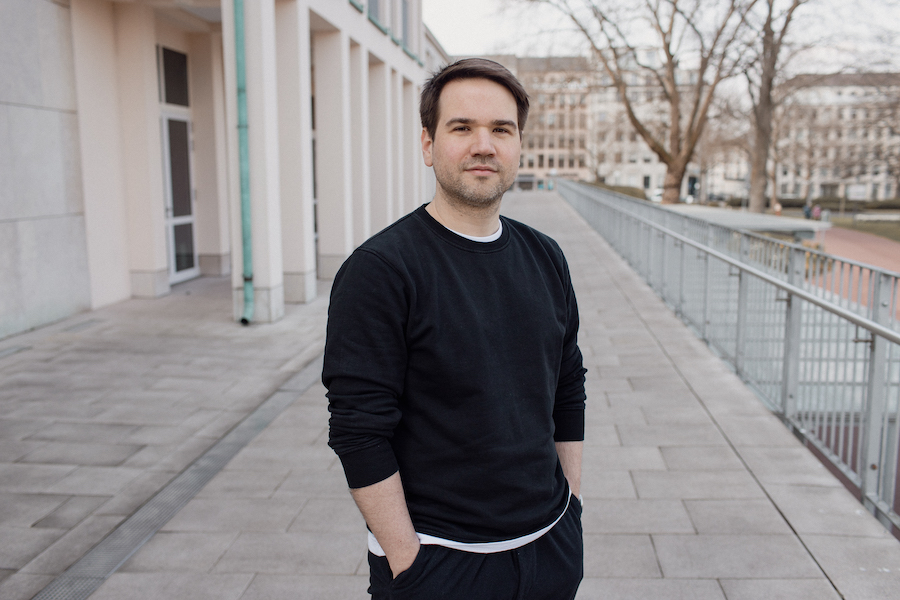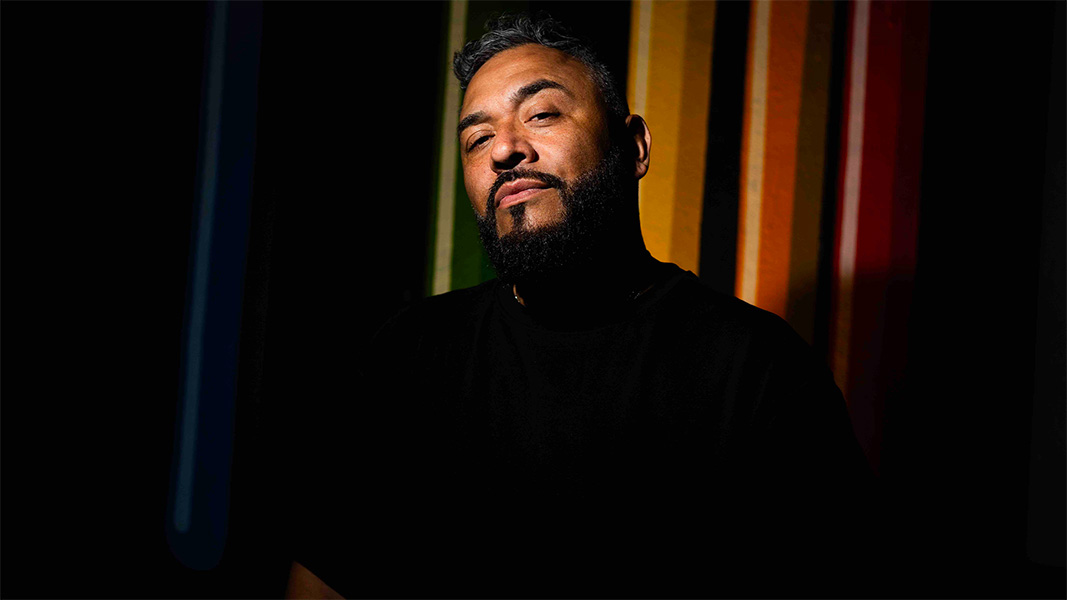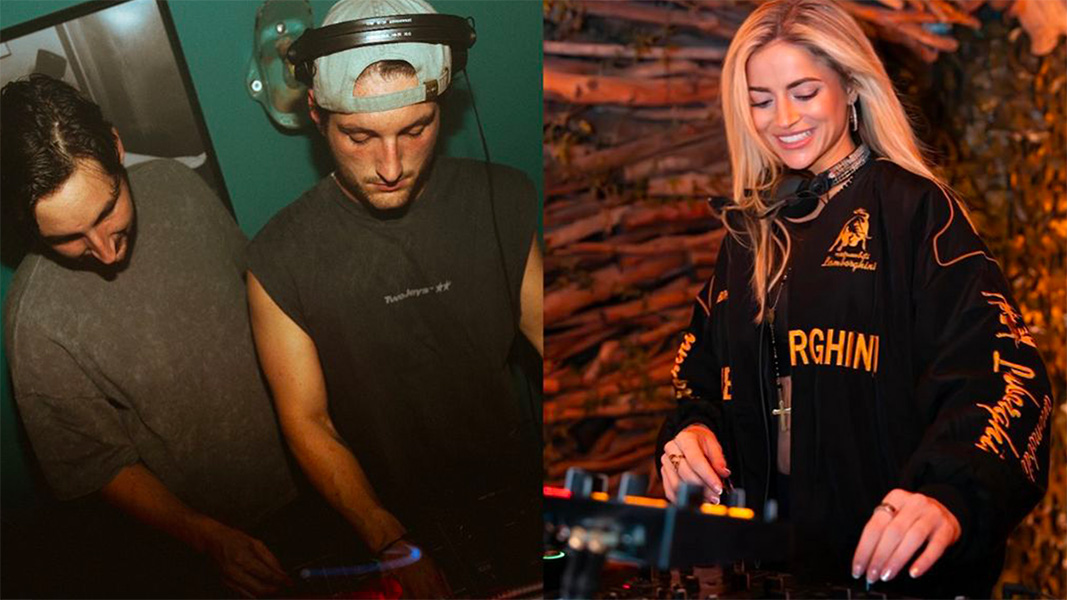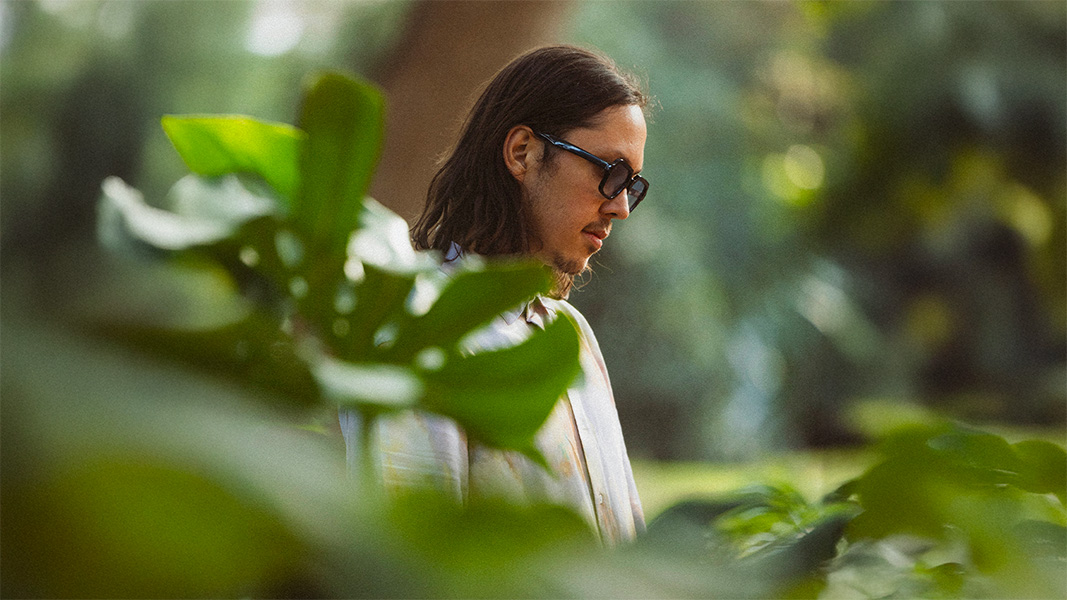One of Freerange’s longest-standing artists Manuel Tur serves up another brilliant release in the form of Love Me Well. Someone who needs very little by way of introduction, Manuel has been honing his craft for nigh on two decades with a discography that includes some of the most influential labels and associations in electronic music. Running Back, Innervisions, DFA, Ovum, Objektivity, Mule, Drumpoet, Permanent Vacation, Andhim, André Hommen, Tensnake, Shit Robot, Tale Of Us, Ane Brun… you get the idea. Manuel continues to be in demand as a producer and remixer and remains relevant thanks to his golden ears, precision engineering and Midas touch.
For his tenth Freerange release (not including his three LPs!) he delivers a diverse three-track EP that spans the house spectrum from the deep, emotive late-night mood of the title track through sublime, delicate, and hauntingly beautiful Paperasse and rounding off with the driving, acidic, minimal disco groove of Touch Move. Proper job!
You can now listen to the full premiere of the tile track ‘Love Me Well’ exclusively on When We Dip. Enjoy!
WWD: Thanks for taking the time to have a little talk with WWD. How are you spending your day?
Hi there, good talking to you! Right now, I’m at my studio, working on some new projects.
WWD: Where were you born and raised?
I was born and raised in Essen in the German Ruhr area. My mother was born in former East Germany and my father is Ibizan.
WWD: You are in the city of Essen. Would you saying being there has had impact on your artistic output?
Yes and no. Essen and the surrounding Ruhr area are quite big, but feel rather small. I was lucky enough to have access to a healthy infrastructure of clubs, record stores and fellow artists, however there is not much of a music industry here.
WWD: I know you first started chopping up disco samples at an early age. How old were you when you first started tinkering with sounds?
My first tracks were made up of samples from my mother’s soul music collection and then arranged in Sonic Foundry’s ACID. I must have been 14 at the time. Soon after that I got my first 56K internet connection, Soulseek and Fruity Loops v3 – this led to the production of my first release.
WWD: You’ve made a lot of different styles of music over the years in this ever-changing musical landscape. If you had to define the sound of Manuel Tur what would you say? Or do you think it does not fit into a box?
Styles are not so important to me, they are just forms I use to express myself. If I played the guitar or piano I would express myself in a different way, but my instruments happen to be samplers and drum machines. But within my means, I don’t want to limit myself to a certain style or genre. I hope that the essence of my music transcends these formal aspects.
WWD: Some say our early years are when our tastes are formed. Is there an album that sticks in your mind from being a kid?
I would have to name three albums that all came out around the same time that influenced me a lot with respect to my music career: Basement Jaxx ‘Remedy“, Alex Gopher’s ‘You, My Baby’ & I’, and ‘Cassius -1999’. I used to listen to these records on endless repeat as a young teenager and tried to imitate them. I probably still do to this day. What struck me about the Basement Jaxx album was the richness of detail; the Alex Gopher album with its use of samples; and the Cassius album with its sense of space and groove.
WWD: Techno in a broad term, is often present in your beats. Who are the techno artists that have inspired you over the years? I reckon Jeff Mills has to be one of the greatest techno artists.
You’re definitely right, it’s a very broad term and difficult to grasp. When I think of techno, I think of Kraftwerk first. I come from the Ruhr area, an often-overlooked major influence on their music. Düsseldorf is only 15 km from my hometown, and I can clearly hear this connection to the place I grew up in their music. When Kraftwerk kicked off their world tour in 2015 at the historic Lichtburg cinema in Essen’s city centre, of all places, it was quite moving. Of the second wave of Detroit artists, Carl Craig’s work in the 2000s certainly had an impact on me. As for Jeff Mills, I’m afraid I don’t have a qualified opinion on his music, but when I hear his name I always think of my first visit to Tokyo many years ago and seeing his face on one of the big screens near Shibuya Crossing. That image has stayed with me.
WWD: Where were the places you DJ’d in the early years?
The first gigs were small parties organised by my schoolmates, but then I very quickly started playing abroad and in different countries. However, I have never held a residency anywhere.
WWD: As someone who has played in some amazing clubs about the world, the last few years has been a tough and testing time for your chosen profession. Are you back out gigging much these days? Or is the studio your preferred place?
I haven’t played so many gigs lately, and although the studio is my preferred place indeed, it would be good to be playing out again soon.
WWD: You have been honing your craft for almost twenty years, and your discography is highly impressive. What was the first release you ever put out?
My very first release was called ‘Caissa’, named after the goddess of chess, released on the small London label Mada Music in 2002 when I was 16.
WWD: Which of your release over the years do you think was your most notable?
I think ‘Deviate’ is still the track that most people approach me about. It’s great to hear that after all these years people still have that connection to records that I can barely remember producing. It’s like they’ve developed their own life.
WWD: Your debut on Freerange was in 2007 ‘Acorado’. What did it feel like at that time, getting signed to Freerange?
That was absolutely so exciting. Freerange was already one of the hottest labels in the UK house scene at the time, and I think with ‘Acorado’ I had the opportunity to bring a slightly different flavour to the label’s output then.
WWD: You were working with DPlay at that time. Do you still do stuff together? What happened to him?
Dplay has a healthy family life with children and a proper day job. We’re still in touch and definitely plan to meet for a few beers in my studio in the future, and who knows, maybe we’ll come up with some new music. The pandemic somehow prevented us from doing that earlier.
WWD: What was your release on Innervisions? That must have been quite a buzz..
I had a remix for Ingrid Lukas on one of their Secret Weapons compilations that was released a few years ago. I did the remix with a classic Dixon approach in mind and was very happy that he liked it. Dixon also reworked a track from one of my joint side projects “Amberoom” for another Secret Weapons release and for another remix I did for their sub-label Philomena. I also mixed a Marcus Worgull EP on Innervisions years ago. I saw Dixon play in my hometown and bought Ame records in my early twenties when Innervisions was just starting out, and it’s always great to have some of your music on a label like that.
WWD: What can you tell us about your new label? What is the direction of this new imprint?
My new label Spaced Repetitions emerged more or less by accident during the pandemic. In the first few months, labels were hesitant to put out or sign new music because no one knew how things would develop. In the meantime, I was making track after track and had no idea what to do with them. So I applied for funding for a vinyl pressing through my hometown’s Covid artist relief programme, which led to the development of a new label brand that I can use in the future to release only what I think needs to be released.
WWD: You’ve been in high demand as a remixer over the years working with Dennis Ferrer, Roisin Murphy just dropping a few names! What was one of your remix highlights for you?
The remix for Nick Holder on NRK at a very young age was certainly very exciting, then later the remix for Jazzanova. But my favourite remixes tend to be the lesser known ones, like my Edition 2 of Kieran Apter’s ‘All I Want’ or G.Family’s ‘People With Bullets’. The most unexpected remix success was certainly my remix of Langenberg’s ‘Times’ with support from Kevin Saunderson and Benji B, who made it a staple his DJ sets and radio show and even included it in his ‘Deviation Classics’ compilation last year.
WWD: You’ve put out music with your side projects also on some incredible labels, personal fave of mine Mule Musiq. Are you still involved with Clavis and Amberoom? What’s happening with these projects these days?
I produce both projects together with my studio partner Adrian, who has his studio right next to mine. We have recently finished a number of new tracks for Amberoom, so there should be new material coming out sooner or later.
WWD: How did you hook up with Jimpster initially?
I naively sent him an email with my top 10 and put one of his Audio Montage remixes at number 1. Being the kind person he is, he immediately replied to thank me, and I took the chance to send him a demo, which became my first release on Freerange.
WWD: Freerange output has been solid for 25 years, always serving as a great platform for new talent. What tip would you give to young artists trying to get signed my decent labels?
That’s a difficult question and I’m not sure I’m really qualified to answer it. The scene and the industry have changed incredibly since I started, and I imagine it must be hard to get your music heard these days. But in any case, I would advise everyone then and now to be polite and actually take the time to say hello and introduce yourself and not just send a link with no context.
WWD: You are one of Freerange Records longest standing artists. How do you keep it fresh for the label?
Just like the label, I try to bring new ideas into my music, inspired by everyday life and the inevitable fact of getting older.
WWD: Is there a Freerange release that never leaves your bag? Aside from yours of course!
There are so many classic Freerange releases but one that I never get tired of playing is the Jimpster remix of Kirk Degiorgio’s ‘Starchaser’.
WWD: Your new release ‘Love Me Well’, is another fine example of your studio wizardly, great beats, and precision mixing. Can you talk us through the release a little?
The first two tracks were written in lockdown at home in my living room and consist mainly of samples that I pieced together. When it became clear that this would turn into an EP for Freerange and the lockdown was over, I worked out and mixed the tracks at my studio. This wasn’t so easy, because although the tracks felt emotionally just right, they weren’t particularly good technically due to the work done on a rather rudimentary setup at home. So, I had to find a compromise that kept the level of emotion and didn’t fall off too much technically. I then put together the third track, Touch Move, in one afternoon at my studio.
WWD: Have you ever done a live set? Is this something that interests you?
Oh yes, I did. From 2014 to 2016 I played live sets almost exclusively across Europe, and that was a lot of fun. That was all with a laptop, but I also played live sets with my collaborative projects Ribn and Clavis, both just with machines and no computers.
WWD: What other projects are you working at the moment?
I’m currently trying to finish some tracks for new solo EPs, both for my own label and for labels that have asked me for new material.
WWD: What do you like to do when you’re not making music?
I’m a low-key person. I like literature, films, and chess.
WWD: Thanks so much Manuel and good luck with this KILLER release!
Release Date: April 29th, 2022. Buy Here
Manuel Tur: Facebook // SoundCloud
Freerange: Facebook // SoundCloud





